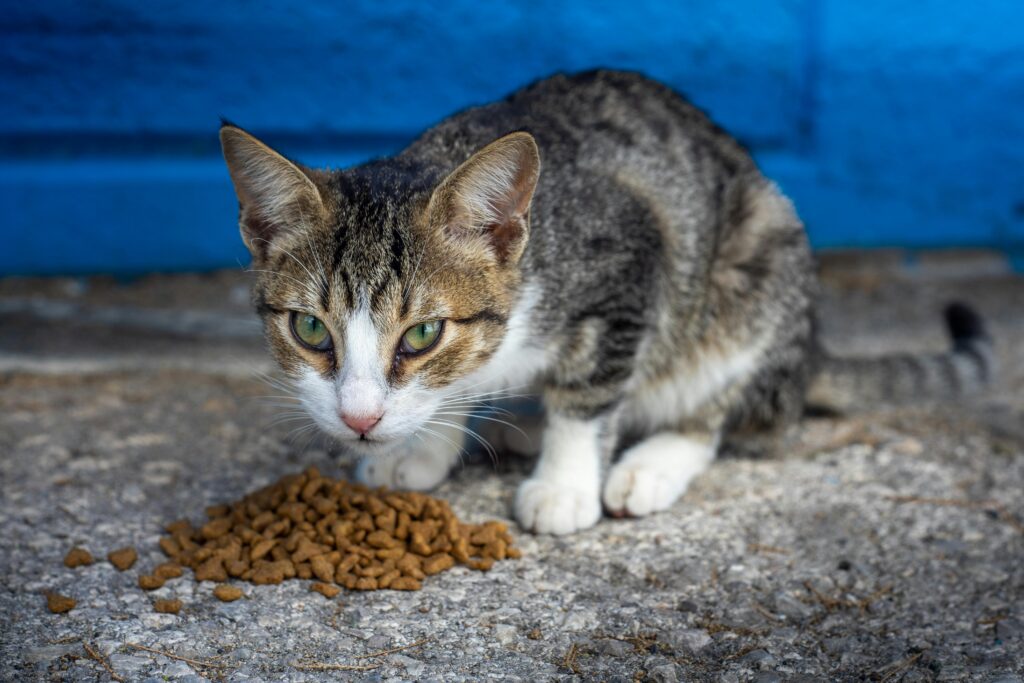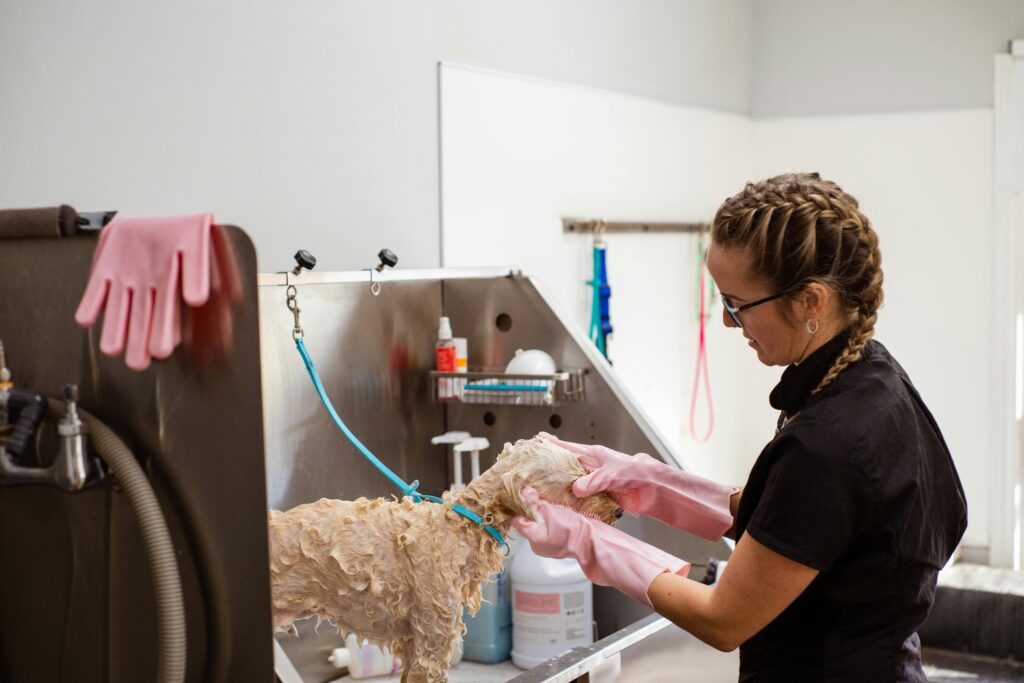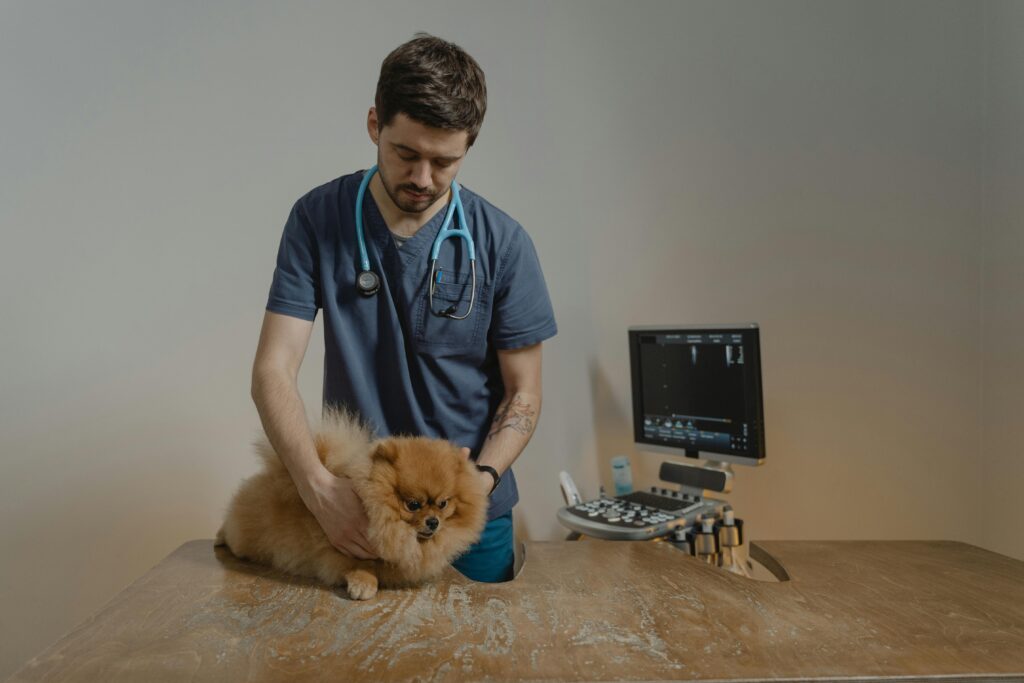Pets are like family. They can get sick, too, just like people. We have to read the signs, though, since they can’t talk. If you notice health problems in your pet right away, it can get better faster. The information in this guide will help you figure out what to do if your pet is sick. This article will show you clear signs that your dog, cat, rabbit, or bird is ill. You will also learn when to get in touch with the doctor. Paying attention is the first thing you can do to keep your pet healthy.

Changes in Eating Habits
Not Eating at All
Your pet stopping to eat is one of the first signs that something is wrong. Sometimes, skipping a meal is fine. If your pet does not want to eat for more than a day, though, it could be a sign of a significant health problem. This could be due to pain, issues with the teeth or gums, stomach issues, or even diseases. If your pet still will not eat, do not wait too long. See a vet right away.
Not eating as much as usual
A quick loss of hunger is a sign that something is wrong. If your cat or dog usually eats everything in their bowl, but now they are only eating a little, it could mean they are sick. It could be worry, illness, or pain inside. Keep an eye out for other signs, like throwing up or feeling tired.
Having More Food Than Usual
Being hungry more often might seem like a good thing, but it can sometimes lead to problems. When dogs have diabetes or parasites, they may become hungrier. Even if your pet eats more, it might still be dropping weight. Write down changes and talk to your vet about them.
Unusual Bathroom Habits
Diarrhea or Loose Stool
Poo that does not go away after one day could mean that your pet has an illness, parasites, or an intolerance to a particular food. Dehydration is another effect of diarrhea. As long as it doesn’t go away, make sure your pet gets enough water and takes it to the vet.
Hard to Go or Not Going at All
Your pet may be congested if they have trouble going to the toilet or have not pooped in more than a day. This can happen if you do not eat well, are dehydrated, or have a blockage. A red flag is if you are stifling or crying while you are trying to go.
Changes in the urine
Watch how often your pet goes to the toilet. If they pee a lot or a little, or if it smells bad or looks bloody, it could mean they have a problem with their kidneys or bladder. Having a lot of mistakes at home could also be a sign of an infection or diabetes.
Breathing Problems
Fast or Labored Breathing
It can be dangerous to breathe faster than usual or with a lot of effort. It could be because of pain, an infection, or even heart issues. Pay attention to changes in your chest and listen for strange sounds.
Coughing or Wheezing
A dry cough or wheeze could mean you have asthma, a kennel cough, or another lung problem. If you have a cough that lasts more than a few days, even a weak one, you should see a doctor. These sounds can mean a lot of trouble for small pets.
Breathing Loudly
It is not normal to snore, gag, or breathe heavily while you are sleeping. It could mean that something is stuck in their throat or that it is getting bigger inside. Get help right away if your pet is having trouble breathing.
Behavior Changes
Hiding or Avoiding Contact
Pets often try to hide when they are sick or hurt. Dogs might stay under the bed, while cats might curl up somewhere quiet. Your pet may be ill if they do not want to be touched or played with.
Being hostile or irritable
When they are sick, some cats get irritable or mean. This change in behavior could mean they are in pain. If your normally calm pet starts to growl or hiss, you should check on their health.
Getting more sleep than usual
Pets sleep a lot, but if they sleep too much, it could mean something is wrong. If your pet does not want to eat, walk, or play, they might be sick. You should pay attention to tiredness and other signs.
Vomiting or Nausea
Throwing Up Repeatedly
A stomachache once in a while is normal, but if your pet throws up several times a day, it means they are sick. Throwing up can be a sign of being ill, poisoning, or organ damage. Look for blood or colors that do not seem right in the stomach.
Stomach pain or dry heaving
It can be dangerous for dogs to try to vomit without anything coming out. It could mean fat, which is very dangerous to your life. Cats may gag when they have hairballs, but dry puking all the time is not normal.
Drooling or Licking Lips
Drooling a lot, especially when there is no food nearby, could mean that you are sick or have teeth problems. When pets want to throw up, they often lick their lips. There is a minor sign that you should pay attention to.
Skin and Coat Issues
Itchy, Red, or Swollen Skin
Itching or scratching all the time could mean that your pet has an allergy, an infection, fleas, or other bugs. Look for red spots, bumps, or sores. It is possible that your pet needs medicine to stop itching and help the skin heal.
Loss of hair or dull fur
Hair loss in patches or dull-looking hair could be a sign of not getting enough food, stress, or a skin disease. A pet’s coat should be shiny if it is healthy. Once it does change, it is time to find out what caused it.
Lumps or Bumps
You may feel a new lump under your pet’s skin. Some are not dangerous, but others could be. Look for pain, swelling, or bumps that are growing quickly. Always have your doctor look at something new.
Eye and Ear Problems
Red or Watery Eyes
It could be an illness, an allergy, or an injury if your eyes are red, wet, or swollen. When pets’ eyes hurt, they might squint or stay away from light. Quickly get help to avoid harm.
Discharge or Bad Smell from Ears
It could be an ear infection if your pet’s ears smell bad or have yellow or brown discharge. If you do not treat ear problems, they can hurt and cause you to lose your hearing. Pay attention if they shake their heads or scratch their ears.
Cloudy eyes or trouble seeing
Age, cataracts, or an accident could cause your eyes to become cloudy or make it hard to see. Your pet may not be able to see well if it runs into things or is afraid of moving around. Treatment is more likely to work if you act quickly.
Changes in Weight
Sudden Weight Loss
There is probably a problem if your pet drops weight without trying. An illness, diabetes, cancer, or bugs could cause this. People who lose weight quickly need to be watched out for.
Weight Gain for No Reason
If you gain weight even though you do not eat more, it could be because of a thyroid problem or not getting enough exercise. It can be hard for pets like cats and mice to breathe and move when they suddenly put on a lot of weight.
Getting swollen
A stiff or swollen belly could be due to gas, organ problems, or too much fluid buildup. It might hurt and be dangerous to do this. If your pet’s belly looks bigger than usual, you should always take them to the vet.
Limping or Movement Issues
Limping or Trouble Walking
A limp is often a sign of pain or damage in the joints. When walking, your pet might not use one leg, move slowly, or cry. It could be because their paw is hurt, they have arthritis, or something is stuck in their paw.
Being stiff after resting
If your pet is stiff after a nap or can not stand up straight, it could have arthritis or joint problems. This happens a lot to older pets, but it can also occur to smaller pets. It might help to get extra care and medicine.
Shaking or Loss of Balance
It’s not normal to shake, wobble, or fall over. These signs could mean that you are in pain, have a nerve problem, or have been poisoned. Get help right away if your pet can not keep its balance.
Signs of Pain or Discomfort
Whining or Crying
When pets are in pain, they might make strange noises. Pets like dogs and cats can whine, yowl, and grind their teeth. Your pet is telling you that they are hurt by making these sounds.
Heavy panting or being restless
Panting for no reason can be a sign of pain, especially in cats. Also, your pet might pace, move around, or act out of sorts. There may be something wrong inside if these things are true.
Do not want to be touched
If your pet moves away when you touch them, they may be hurt or sore. If you do not want to be touched in a particular place, it shows that you might be hurting.
Conclusion
If you notice that your pet is sick right away, it could save its life. Watch for changes in mood, behavior, and hunger at all times. There are times when minor signs mean something significant. If you are not sure, call your doctor. Being safe is better than being. You must tell your pet when something is wrong. If you know these signs and stay alert, you can give your furry, bird, or scaly friend the long and healthy life they deserve.



